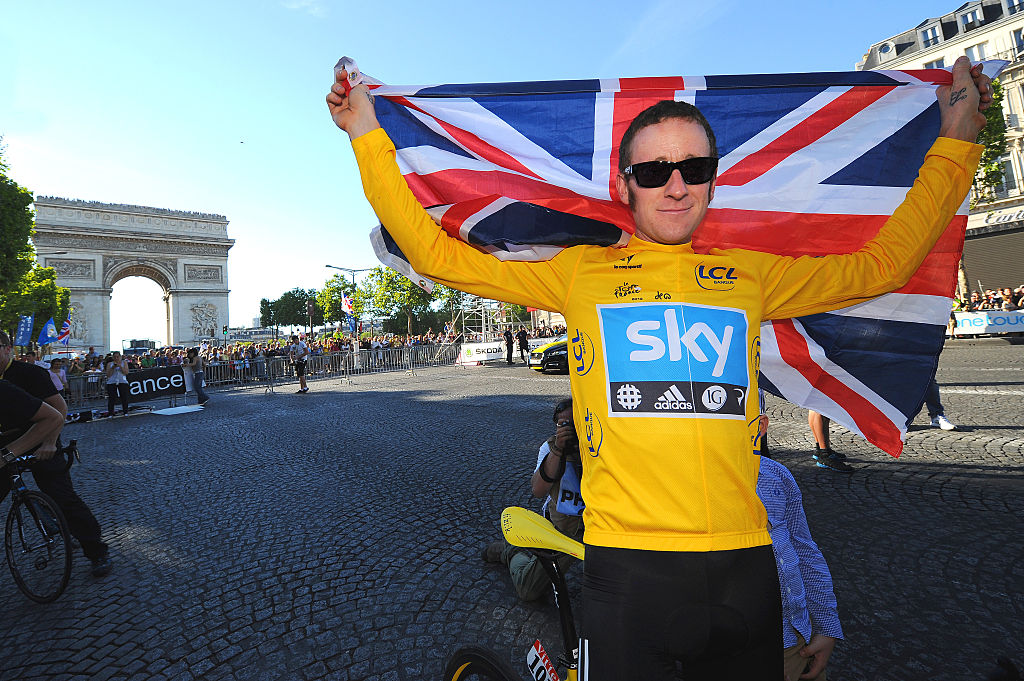Bradley Wiggins used cycling as a distraction after years of 'abuse' by coach
2012 Tour winner claims he suffered 'borderline rape and sexual abuse' when he was 12

Bradley Wiggins has opened up in more detail about his personal suffering during his life and racing career, explaining how he dedicated his life to cycling as a distraction after suffering what he described as “borderline rape and sexual abuse" from the age of 12 by a coach.
Wiggins has recently worked for Global Cycling Network (GCN), part of digital sports media company Play Sports Network, commenting on major races from a motorbike but he suggested he no longer has any interest in the sport, while also admitting it has given him everything. He appears to love the sport in some ways but hates the way he was pushed, and pushed himself, to success.
Wiggins first alleged last year, during an interview with Alasdair Campbell for Men’s Health, that he was groomed by a coach he refuses to identify.
In January, he launched an NSPCC campaign entitled Listen Up, Speak Up, urging people to learn the signs of child abuse and to blow the whistle when they see it.
He gave details of what happened during his teenage years and he was forced to return to them during his charity work to the Happy Place podcast with Fearne Cotton. He is promoting a ‘Ride London’ event in May for the Mind charity and admitted he is ready to undergo personal therapy.
“The hardest part was the campaign stuff, doing interviews about it. I was having to relive some of the minor incidents that happened to me with this coach to add weight to the campaign,” Wiggins said about the problems he faced as a boy.
“This happened over a three-year period. I can't remember how many times it happened. We're talking about incidents from very minor to borderline rape, sexual abuse, whatever term you want to use.
Get The Leadout Newsletter
The latest race content, interviews, features, reviews and expert buying guides, direct to your inbox!
“It really hit me hard. I have to be careful how much I do to help people at the expense of myself. My greatest shame was that another man had done that to me. I couldn't get my head around the abnormality of that - particularly at 13. That is a trauma. From that moment, I pretended it didn't happen, and I dedicated my life to cycling as a distraction.”
Wiggins retired in 2016 when he was 36. Speaking to Men’s Health last year, he said he had embraced his love for cycling again, partially to understand his place in the history of the sport.
Tabloid reports of his comments on the Happy Place podcast focused on his hate for the sport but his comments were actually more nuanced.
“People say it's a shame I've fallen out of love with cycling, but I was never in love with it - it became a religion. You don't fall in love with a religion, you adopt a religion. Now I've left my faith,” Wiggins said during the podcast.
Wiggins grew up in London, idolising his absent father Gary who raced on the track in Europe. But he struggled to understand his relationship with his father even after he died in Australia in 2008.
Wiggins believes that pursuing his goals in cycling was a way to feel closer to his father and find a direction in life. He can see his personal suffering but also what cycling has given him.
“The closest connection I could have with my father was by following in his footsteps," Wiggins admitted.
“I’d be nothing without cycling in my life, it’s given me everything. At the same time it almost took everything away from me. I believe all my success stems from adversity, running away from problems in my life. I think that’s the difference between good and great at something in life. I think greatness stems from adversity.
“I had to deal with all that stuff when I stopped cycling at 36. It’s why I had sustained success, I was always onto the next thing. I’m a freer man in my head, now I’ve dealt with it all.
“I think cycling is a real passageway to mental and physical freedom. There’s a famous saying, ‘Outside is free'. Everyone has access to a bicycle and it has the ability to change people’s lives by getting on a bike.”

Stephen is one of the most experienced member of the Cyclingnews team, having reported on professional cycling since 1994. He has been Head of News at Cyclingnews since 2022, before which he held the position of European editor since 2012 and previously worked for Reuters, Shift Active Media, and CyclingWeekly, among other publications.